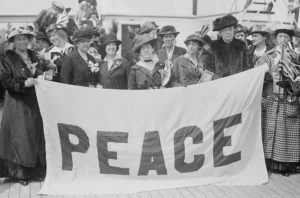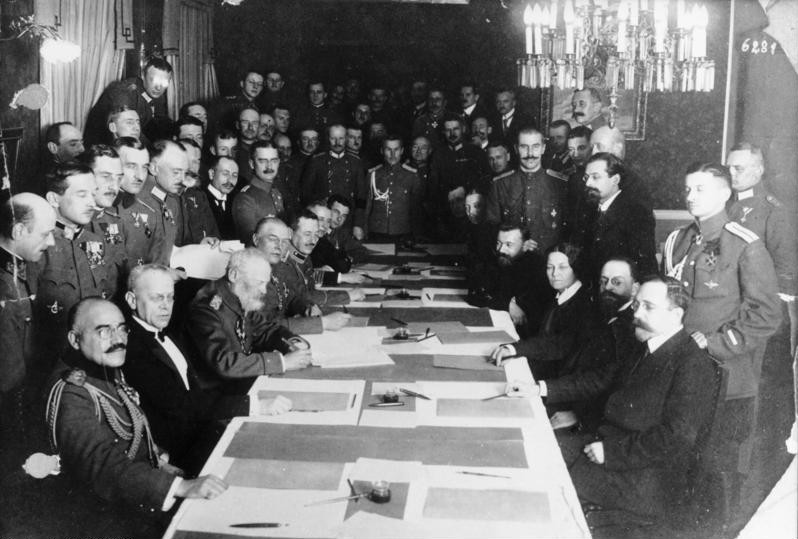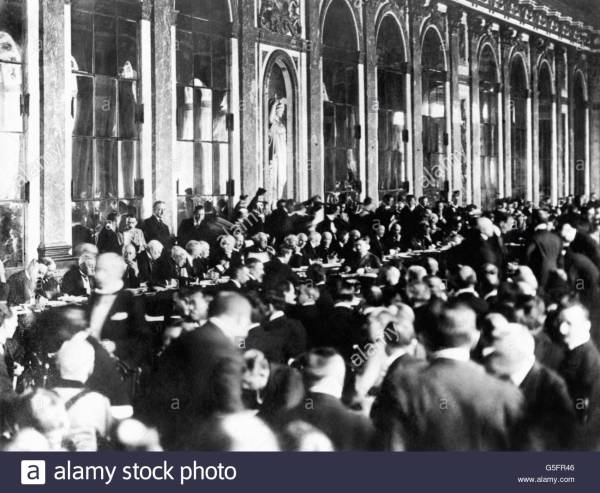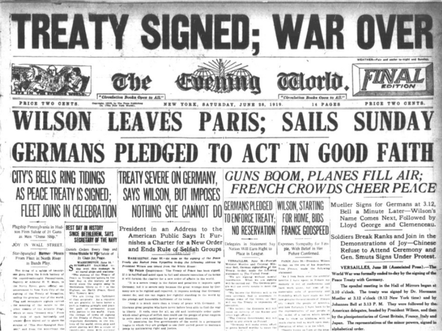Reluctantly They Sign the Treaty
Paris Celebrates.
In Berlin, The Terrible Cold of Abandonment.
(28 June) In Germany by these days a century ago, the political situation is chaotic.
So reports historian Margaret Macmillan.
“The coalition government was deeply divided over whether to sign the treaty. Political leaders in the west along the Allied invasion route were for peace at all costs, as were the premiers of most of the German states, who saw themselves having to make separate treaties with the victors.”
“The nationalists talked bravely of defiance without making any useful suggestions about how to put it into practice.”
“Among the military, wild schemes circulated,” she reports, “to set up a new state in the east, which would be a fortress against the Allies; to have a mass revolt against the government or to assassinate the leading advocate of signing.”
There are strong possibilities on all sides. “Plunder and murder will be the order of the day,” Macmillan reports, “and Germany will break up into a crazy patchwork quilt of states, some under Bolshevik rule, others under right wing dictatorships.”

The Germans at the peace negotiations
The sentiment is strong: Germany must sign.
But others resist signing because they believe – without evidence – that the Allies are bluffing.
The logic is compelling. The Allies don’t want to occupy Germany. That costs too much. Therefore, they are bound to make concessions, if only Germany stands firm.
German military and political leaders respond. The German cabinet is deadlocked and resigns. Germany now has no government and no spokesman. The deadline drifts ever closer.
“In Paris, the peacemakers wait tensely for the final German word,” writes Macmillan. “At about 4:30 in the afternoon (a century ago) a secretary rushed into the Council of Four to say that the German reply was on its way.”
“I am counting the minutes,” Clemenceau says.
The German note arrives at 5:40 pm.

Signing the peace treaty at Versailles
Macmillan describes the scene. The statesmen crowd around as a French officer translates the German. “Lloyd George breaks into a smile. Wilson grins.”
“No more work was done at the peace conference that day.”
The signing ceremony is rife with symbolic significance. It takes place on June 28 a century ago, the precise anniversary of the assassination of the archduke and his wife in Sarajevo in 1914, the act that started the war.
The signing of the peace treaty takes place in the Palace of Versailles. in the room called the Hall of Mirrors, where reports Macmillan, “the German empire had been proclaimed in 1871.”
“The audience,” she reports, “at first watched in respectful silence. But soon noise overtook the room. Then the key peacemakers, and the Germans, appeared.”
The treaty was signed.
“Wilson left that night,” according to Macmillan, first by train to Le Havre, then by ship to the United States.
“While Paris rejoiced,” Macmillan reports, “Germany mourned. Even good socialists now talked of a ‘peace of shame.’”
The news of the signing was heard “like a thunderclap.”
“We shivered,” one German is quoted as saying, “from the terrible cold of abandonment.”


Thank you for your dedicated blogging on The Great War over the last 5 1/2 years. This has been a very enjoyable and informative series. Best wishes for whatever comes your way next.
Many thanks for your dedicated interest in the blog. It’s been a fascinating trip through very important history. I couldn’t have done it without the support of readers and listeners like you.
All the best.